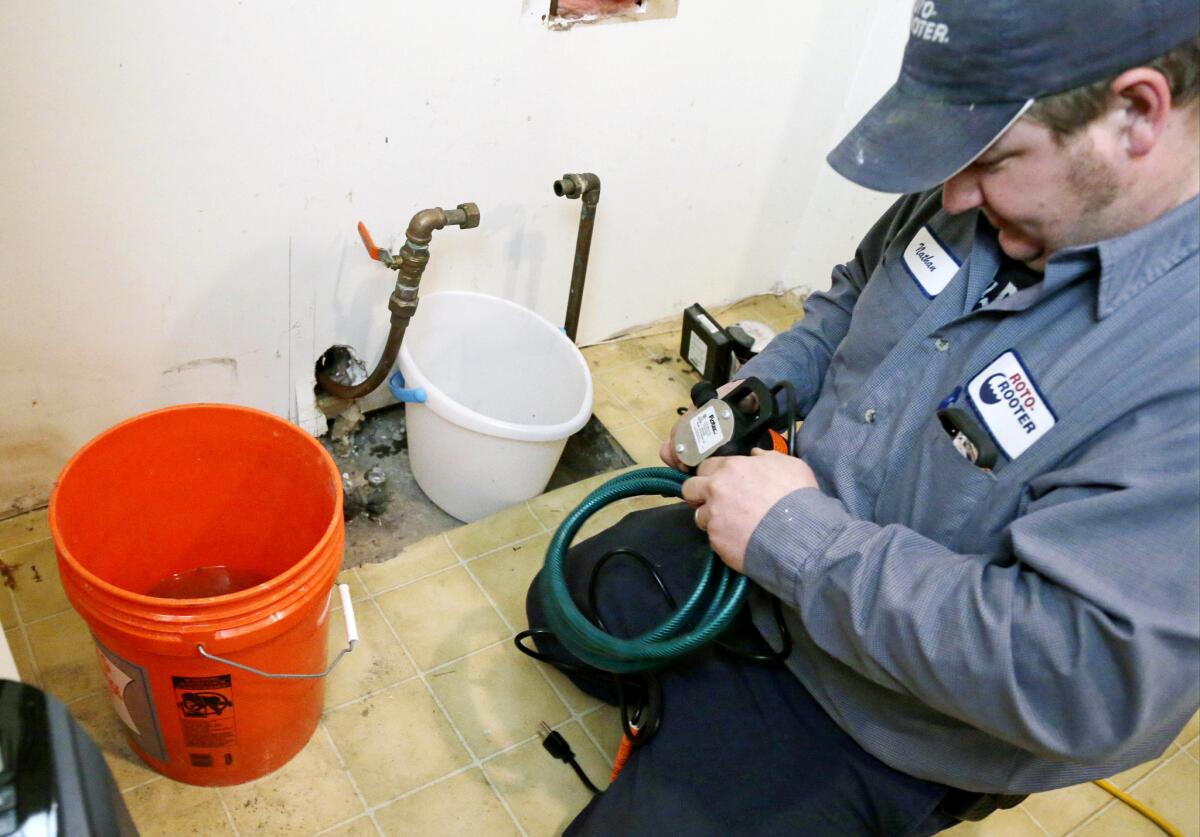Q&A: Homeowner association manager controls choice of contractors

- Share via
Question: Our homeowner association manager keeps hiring the same contractors over and over again. She’s an expert at creating delays to get what she wants and has some sort of special relationship with these contractors. She makes things up like stating, “Per board protocol, directors do not ever bring in any contractors to bid on jobs.” As a director, I know that’s not our so-called protocol. I’ve never heard of anything so patently ridiculous. When I speak, she encourages directors to titter at me so I’m discounted. Because of her, we accomplish little.
The association rarely gets three bids to choose a contractor and everything she controls costs us more. Between board meetings, she emails directors headlined “emergency,” then explains something “needs fixing right now! Can’t wait for next board meeting.”
Directors are given only one bid, from a friend of hers, for which she demands we vote “yes” or face dire consequences as a result of something needing repair. These so-called emergencies are ongoing problems, yet suddenly they are considered an “emergency” necessitating an immediate vote. There’s every reason to believe she receives under-the-table remuneration from these contractors.
Every time I tell these majority directors this is no way to do business, they don’t listen. Instead, they just keep tittering at me. As a result, nothing I say is taken seriously. At meetings, the manager calls me a “troublemaker,” then as if on cue, the three majority directors titter at me. These actions are unnerving; I don’t want to be implicated in any wrongdoing. What can be done?
Answer: Several courts have recognized that the broad and extensive powers of association boards come with the potential for abuse, and that directors are obligated to persons other than holders of the majority voting power and should be held to a high standard of responsibility. A premise with which many boards struggle is the duty to act in good faith and avoid arbitrary decisions — including so-called emergency decisions.
Failure of these directors to adequately police and supervise the manager creates an incentive for management to take liberties with board positions, removing disincentives to act legitimately. You must differentiate yourself from those recalcitrant directors.
It is a huge breach of contractual and fiduciary duties for a manager to receive payment for approving certain vendors. It is a bigger breach of the directors’ fiduciary duties to forgo obligations to titleholders whose personal assets are at risk under an umbrella of possible corruption. Managers owe the association, board and owners a duty of loyalty, which includes an obligation to prevent transactions like these from occurring.
The board’s duty is to act in accordance with principles of sound corporate governance. The second your manager suggested that board “protocol” is for directors to remove themselves from selecting vendors who are paid with association funds, your board should have started looking for a new manager.
When a manager induces a board to breach its duties and prevent bona fide vendors from presenting bids for projects, she acts not as a manager in upholding the association’s best interests, but rather as an adversary or competitor. Boards have no legitimate reason to allow themselves to be pushed around by a manager; she works for you, and she can be terminated by you.
Directors should not only bring in bids, they must actively engage in the vetting process for new vendors and continually review the work and reports of existing vendors. Sure, it takes a little effort and some time, but it benefits the entire association. That’s why you were elected. Protecting association assets is paramount to the position of board director. The board must maximize efficiencies while minimizing costs. This sometimes requires reviewing and re-reviewing decisions that were previously made, even by prior boards, to determine whether better or more efficient alternatives are now available.
Tittering while anyone is speaking is extremely rude. In addition to being unprofessional, encouraging tittering during board meetings, then branding you a troublemaker, interferes with the business of the association. More distressing are the actions of your tittering board directors whose abject failure to take appropriate measures against management exposes them to civil liability. Titleholders need to attend meetings and view these actions for themselves, then consider options against the board for breach of fiduciary duty and failure to supervise vendors.
Zachary Levine, partner at Wolk & Levine, a business and intellectual property law firm, co-wrote this column. Vanitzian is an arbitrator and mediator. Send questions to Donie Vanitzian JD, P.O. Box 10490, Marina del Rey, CA 90295 or noexit@mindspring.com.
More to Read
Sign up for Essential California
The most important California stories and recommendations in your inbox every morning.
You may occasionally receive promotional content from the Los Angeles Times.






